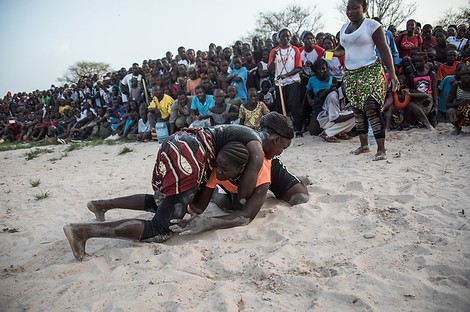Your podcast discovery platform
Curious minds select the most fascinating podcasts from around the world. Discover hand-piqd audio recommendations on your favorite topics.

piqer for: Global finds
Ciku Kimeria is a Kenyan author "Of goats and poisoned oranges" - (https://www.amazon.com/goats-poisoned-oranges-Ciku-Kimeria-ebook/dp/B00HBBWPI6), development consultant, adventurer and travel blogger (www.thekenyanexplorer.com). She writes both fiction and non-fiction focusing on African stories that need telling. She has worked on diverse pieces for various international and local publications including Quartz, Ozy, The East African etc. She has travelled to 45 countries – 16 of them in Africa. 153 countries to go and 63 territories!
"Of goats and poisoned oranges" has been extremely well received in Kenya and beyond. It tells the story of a Kenyan middle aged power couple and their complicated marriage. The novel explores issues of greed, revenge, betrayal and murder. It runs from the 1960s to 2013. It has been described as “Wicked, funny, poignant, wacky, human, a big ball of fun and danger”, “A unique and captivating book”, “Fun and intriguing”, “Impossible to put down once you start reading.”
She recently moved to Dakar, Senegal from Kenya to work on her second novel. She also works at as the Africa Communication Manager at a leading global strategy consulting firm.
She holds a B.S. in Management Science from MIT with minors in Urban Planning and International development studies.
The Women Wrestlers Of Senegal
I am a Senegalese wrestling fan. I have attended matches and watched in awe. I have written about both contemporary Senegalese wrestling and the history of it. This article is particularly exciting for me as it taught me about something I had never known: that there has been a history of female Senegalese wrestlers. Now, more than ever, I need to plan a trip to Casamance in the south of Senegal to witness these fights for myself.
The most popular wrestling style in Senegal, a free-form variant called laamb, dates back centuries, when it was used to celebrate harvests and folklore. Among the Jola people, techniques were passed on during secret initiation rites into manhood, which culminated in displays at festivals. In most of Senegal, women are still forbidden to wrestle — partly because of conservative religious values, and partly because they’re banned from even witnessing some of the lavish mystical rites that surround the sport.
“At some point, the royal court of Oussouye decreed some women could join in showing off their skills at these festivals,” explained Abdou Ndao, a Dakar-based anthropologist. That decision, which could have been taken as far back as the 1400s, was originally “for entertainment” during certain festivals the king himself patronized.
Over 600 years later and in the short existence of the Senegalese women's team (founded in 1997), every single wrestler has come from five or six villages within the Oussouye region.
As a feminist, it makes me thrilled to find out that, even on a small scale, women wrestlers have existed and continue to fight in Senegal. The challenges they face are many — lack of sponsorship opportunities compared to their male counterparts, societal expectations that place the lion's share of the burden of homemaking and childcare on women, norms that they should quit the sport after childbirth. Despite all this, they continue to fight. Perhaps the day will come when the sport will be as world-renowned as the male version.
